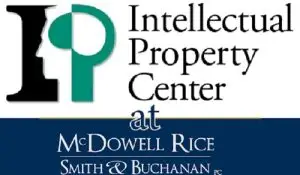In the world of intellectual property law, the presumption of patent validity stands as a crucial safeguard for inventors and innovators. This legal principle, enshrined in U.S. patent law, provides a robust foundation for patent holders to defend their intellectual property rights. As a patent owner or potential challenger, understanding this concept is essential for navigating the intricacies of patent litigation and protection.
What is the Presumption of Patent Validity?

The presumption of patent validity is a fundamental tenet of patent law, codified in 35 U.S.C. § 282. This statute states that a patent shall be presumed valid, and the burden of establishing invalidity rests on the party asserting it. In practical terms, this means that when a patent is granted by the United States Patent and Trademark Office (USPTO), it is considered valid and enforceable unless proven otherwise.This presumption of patent validity applies to each claim of a patent independently, regardless of whether it’s an independent or dependent claim. Even if a claim depends on an invalid claim, it is still presumed valid. This robust protection ensures that patent holders can confidently assert their rights without fear of easy invalidation.
The Clear and Convincing Evidence Standard
For patent litigants, one of the most important aspects of the presumption of patent validity is the high standard of proof required to overcome it. Challengers must provide clear and convincing evidence, one of the highest burdens of proof, to invalidate a patent. This standard is higher than the “preponderance of evidence” typically used in civil cases but lower than the “beyond a reasonable doubt” standard in criminal proceedings.The clear and convincing evidence standard places a substantial burden on those seeking to invalidate a patent. It requires presenting evidence that produces a firm belief or conviction in the factfinder regarding the truth of the matter asserted.
Microsoft Corp. v. i4i Limited Partnership: A Landmark Case
The importance of the presumption of validity and the clear and convincing evidence standard was highlighted in the landmark Supreme Court case Microsoft Corp. v. i4i Limited Partnership (2011). This case centered on Microsoft’s challenge to the validity of a patent held by i4i, which Microsoft was found to have infringed. In trying to overturn a $250 million patent infringement award against Microsoft, Microsoft attempted to argue that the presumption of validity under 35 U.S.C. §285 associated with an issued patent should be lower than the current standard. Microsoft argued that the standard of proof for invalidating a patent should be lowered to a preponderance of evidence, especially when the USPTO had not considered the prior art in question during the patent examination process. The Supreme Court unanimously rejected Microsoft’s argument clearing the way for payment of the trial court’s $250 million dollar award to i4i based upon infringement of i4i’s patent. The Court’s decision in Microsoft v. i4i reinforced the strength of the presumption of validity and its application across all invalidity challenges. This ruling has significant implications for both patent holders and potential challengers:
- For Patent Holders: The decision provides strong protection for patent rights, making it more difficult for competitors to invalidate patents.
- For Challengers: It underscores the importance of thorough prior art searches and well-prepared invalidity arguments when challenging a patent.
Why the Presumption Matters
The presumption of validity serves several crucial functions in the patent system:
- Encouraging Innovation: By providing strong protection for patents, it incentivizes inventors to disclose their inventions and seek patent protection.
- Promoting Certainty: It gives patent holders confidence in the enforceability of their rights, facilitating business planning and investment in patented technologies.
- Respecting USPTO Expertise: The presumption acknowledges the expertise of patent examiners and the rigorous examination process patents undergo before issuance.
- Balancing Interests: It strikes a balance between protecting patent rights and allowing legitimate challenges to invalid patents.
The Role of Experienced Patent Attorneys
Given the complexities surrounding the presumption of validity and the high stakes involved in patent litigation, the expertise of experienced patent attorneys is invaluable. Whether you’re a patent holder seeking to enforce your rights or a company facing infringement allegations, skilled legal counsel can make a significant difference in the outcome of your case. An experienced patent attorney can:
- Conduct thorough prior art searches to strengthen patent applications or identify potential invalidity arguments.
- Develop strategies for asserting or defending against patent infringement claims.
- Navigate the intricacies of patent law and litigation procedures.
- Provide expert analysis of the strengths and weaknesses of patent claims.
- Represent clients effectively in negotiations, administrative proceedings, and court litigation.
Take Action to Protect Your Intellectual Property
Whether you’re an inventor seeking to protect your innovations or a business navigating potential patent disputes, understanding the presumption of validity is crucial. However, the complexities of patent law require more than just knowledge – they demand expert guidance and representation. Don’t leave your intellectual property rights to chance. Contact our experienced patent attorneys today to discuss how we can help you navigate the challenges of patent protection and litigation. Our team has the expertise and track record to help you assert your rights, defend against infringement claims, or challenge invalid patents effectively.Protect your innovations and secure your competitive edge. Schedule a consultation with our patent law attorneys now and take the first step towards robust intellectual property protection

